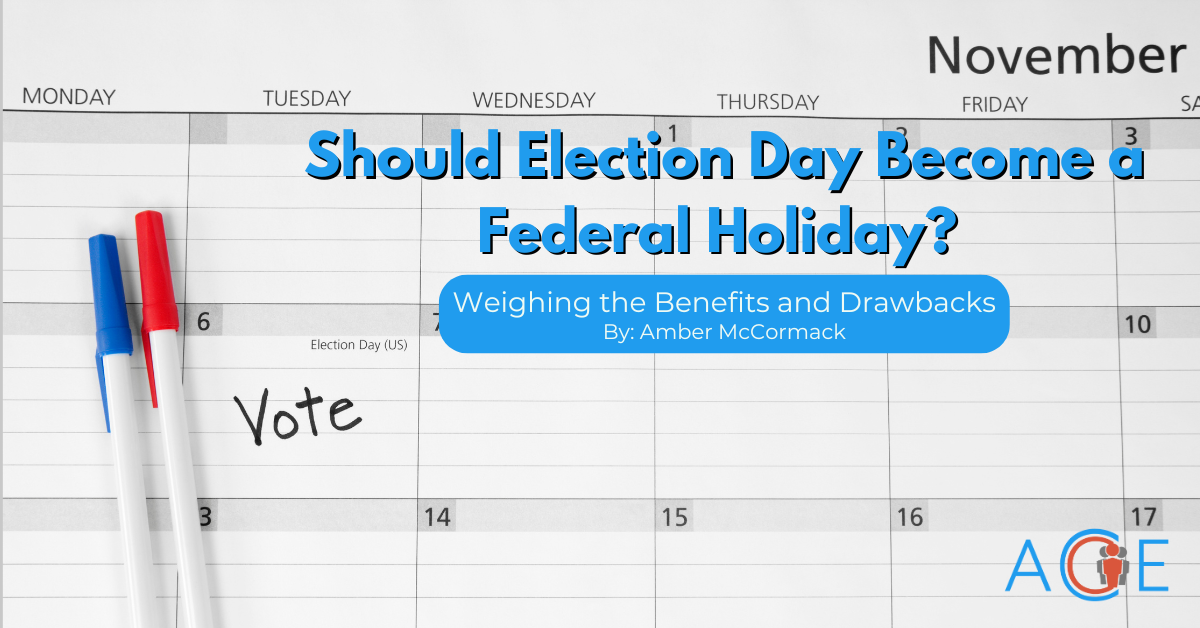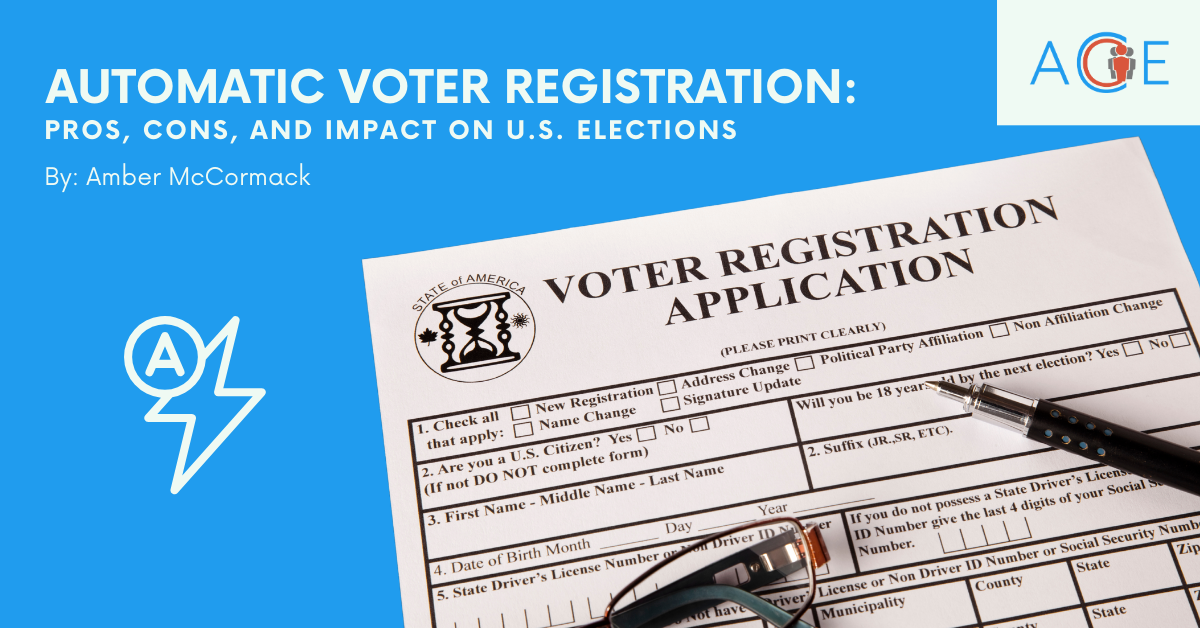Election Day is always held on the Tuesday after the first Monday in November during an election year. Congress codified this tradition in 1845 to account for the nation’s largely agrarian labor force who needed most other days of the week to tend to their crops, travel, or worship.
In modern times, many argue that a Tuesday Election Day poses significant inconvenience to working people, and should therefore be designated as a federal holiday. If Election Day were declared a federal holiday, all federal government employees would gain a paid day off on Election Day. Recently, lawmakers have introduced bills to codify Election Day as a federal holiday. These bills have not gained traction in Congress, despite the fact that 65% of Americans favor making Election Day a federal holiday. Given that weekday workers may struggle to find time to vote on a Tuesday, some argue that a federal holiday would provide more benefits than risks. Conversely, others believe it would have little impact on voter turnout and might harm hourly workers.
Arguments in Favor of Federal Voting Holiday
Proponents of making Election Day a federal holiday argue the policy would promote higher voter turnout in elections by allowing more people to vote without sacrificing a day off work. In the 2020 election, one poll found that 13.1% of participants who were registered voters did not vote because they were busy or had a scheduling conflict. If Election Day was granted federal holiday status, all federal employees – numbering over two million Americans – would be able to vote without worrying about missing a day of work. Although the federal government cannot require private companies to observe holidays, around 75% of civilian workers receive paid holidays that often align with the federal schedule.
Considering that the United States had considerably lower voting-age turnout in 2020 than many comparable countries with weekend or holiday election days, some argue that a federal Election Day holiday would help align the U.S. with the rest of the world. Additionally, proponents argue that creating a national holiday supports democratic ideals and serves as a reminder of the importance of elections. Creating a federal Election Day holiday, according to its supporters, celebrates democracy and instills civic values in American citizens.
Arguments Against Federal Voting Holiday
Those against making Election Day a federal holiday argue that such a large focus on one day is misguided, since almost 70% of ballots in the 2020 presidential election were cast before Election Day.
Many argue that advocates should redirect their efforts to create early voting options in states like Alabama and Mississippi, where early voting is prohibited. Since early voting policies give working people the freedom to cast ballots on weekends or other convenient days, opponents say these policies would eliminate the need for a federal voting holiday.
Additionally, opponents emphasize that private employers are not required to recognize or give paid time off for federal holidays. Numerous employees, especially those who are part-time or blue-collar workers, would likely not be included in the paid time off associated with federal holidays. Discrepancies between federal and private holiday policies might make it especially difficult for working parents who might have to find childcare if their kids had the day off school. Finally, opponents argue that making Election Day a federal holiday would be costly, with one analyst estimating that the added day of compensation would cost $818 million every other year.
Conclusion
The debate over making Election Day a federal holiday reflects broader concerns about voting accessibility and voter turnout in the U.S.. Proponents argue that a federal holiday would encourage more participation in the democratic process and align the U.S. with other countries. Opponents counter that a holiday may not significantly increase turnout and could even create challenges for some workers. As discussions continue, the decision to designate Election Day as a federal holiday will hinge on whether its perceived benefits outweigh its potential drawbacks in promoting a more inclusive democracy.


